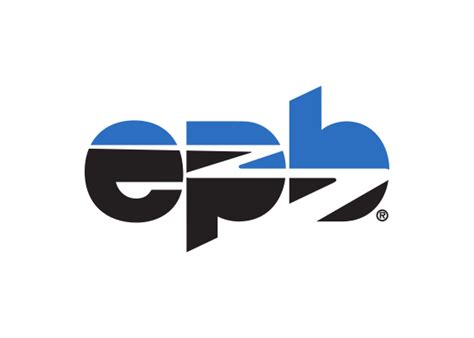
By Kenna Hughes-Castleberry posted 27 Jan 2024
Quantum News Briefs: January 27, 2024:
IonQ Achieves Technical Milestone One Year Ahead of Schedule

IonQ (NYSE: IONQ), a pioneer in quantum computing, has announced the achievement of a significant technical milestone, reaching 35 algorithmic qubits (AQ) on its IonQ Forte system, a year ahead of its planned schedule. This development, leveraging IonQ’s high-fidelity trapped ion qubits and unique all-to-all connected architecture, marks a substantial advancement in quantum computing capabilities. IonQ Forte’s increased AQ capacity enhances its utility in fields like quantum machine learning and quantum chemistry. CEO Peter Chapman highlights this achievement as a testament to IonQ’s leadership in developing powerful and accurate commercial quantum systems. The improvement was made possible through advancements in both hardware and software, including a qubit count increase and a new quantum program compiler. The AQ metric, central to IonQ’s progress, is based on industry-wide benchmarking protocols and reflects the system’s ability to handle complex quantum circuits and algorithms. With the AQ 35 system, IonQ is poised to deliver greater commercial value and has already attracted international buyers like QuantumBasel. IonQ’s quantum computers are uniquely accessible on all major cloud platforms and are utilized by diverse clients, including Airbus and the U.S. Air Force Research Laboratory. IonQ continues to be recognized for its technological breakthroughs and impact on the broader quantum computing field.
Fujitsu and TU Delft Establish New Quantum Lab to Propel Diamond-Spin Quantum Computing Research

Fujitsu and Delft University of Technology (TU Delft) have announced the creation of the Fujitsu Advanced Computing Lab Delft at TU Delft. This new lab, a part of the Fujitsu Small Research Lab initiative, is an industry-academia collaboration hub to advance quantum computing technologies. It will be located at QuTech, a leading quantum technology research institute, collaborating with TU Delft and the Netherlands Organization for Applied Scientific Research (TNO). The lab will focus on accelerating R&D in diamond-spin quantum computing, a field the two partners have explored since 2020. Additionally, they aim to develop practical quantum applications, particularly in computational fluid dynamics. Dr. Shintaro Sato of Fujitsu emphasized the lab’s potential for future breakthroughs in quantum applications. The collaboration has previously achieved the world’s first fault-tolerant operation of spin qubits in a diamond quantum processor and is exploring high-performance diamond spins in scalable nanophotonic devices. The establishment of this lab reinforces Fujitsu and TU Delft’s commitment to advancing quantum computing and positions the hub as a leader in industry-academia R&D in Japan and the Netherlands.
EPB and Oak Ridge National Laboratory announce plans for research collaboration focused on energy resilience and quantum technology

EPB and Oak Ridge National Laboratory (ORNL) have announced the formation of the Collaborative for Energy Resilience and Quantum Science (CERQS) to mark a decade of joint energy-related research worth $180 million. This new venture aims to leverage Chattanooga’s advanced energy and communications infrastructure to enhance the resilience and security of the national power grid and accelerate quantum technology commercialization. The announcement was made during a visit by ORNL’s new director, Dr. Stephen K. Streiffer, to EPB’s facilities alongside U.S. Representative Chuck Fleischmann. EPB and ORNL’s collaboration has resulted in nearly 30 funded projects, focusing on advancements like predictive algorithms for energy equipment failures and dynamic microgrids. A significant focus of this collaboration has been quantum cybersecurity, leading to the development of America’s first commercially available quantum network, EPB Quantum NetworkSM, powered by Qubitekk. The partnership between EPB and ORNL is expected to advance quantum technology and its practical applications further, offering benefits to local customers and providing a model for modernizing utility technology and operations nationally. This effort will also focus on workforce development and economic growth in East Tennessee, aligning with broader initiatives to position the region as a leader in the emerging global quantum economy.
$6 million quantum computing center earns first legislative endorsement

The South Dakota Senate Education Committee has unanimously endorsed a bill to boost the state’s role in the emerging field of quantum computing, advancing it to the Legislature’s budget committee. The bill, backed by the Board of Regents, proposes a $6.03 million investment for quantum computing research and establishing a Center for Quantum Information Science & Technology. This center will be a collaborative effort among four public universities in South Dakota and aims to leverage the power of quantum computing, which uses qubits for faster processing compared to traditional bits used in regular computers. Governor Kristi Noem highlighted the transformative potential of quantum computing in her budget address, noting its ability to perform tasks significantly faster than conventional computers. The proposed funding will cover startup costs, support faculty and graduate students, facilitate an annual research symposium, and provide access to cloud quantum computing resources. This initiative is poised to enhance South Dakota’s educational and technological sectors, with potential benefits across various industries such as agriculture, health sciences, banking, and cybersecurity. Dr. José-Marie Griffiths of Dakota State University emphasized the importance of this investment for South Dakota to remain competitive in this advanced computing field.
In Other News: Physics World Article: “Spin supersolid appears in a quantum antiferromagnetic”
Researchers from China, France, and Australia have discovered a new quantum state of matter, known as a spin supersolid, in an antiferromagnetic material with a triangular atomic lattice structure, a recent PhysicsWorld article states. This groundbreaking discovery, detailed in Nature, could revolutionize cooling techniques by eliminating the need for liquid helium, as the material exhibits a giant magnetocaloric effect. Spin supersolids combine the properties of superfluids (flowing without friction) and solids (having a crystalline structure). The team, led by Gang Su from the University of Chinese Academy of Sciences, conducted magnetocaloric measurements below 1 K and neutron diffraction experiments in France and Australia, confirming the existence of this new quantum state in a compound called Na2BaCo(PO4)2 (NBCP). Their findings indicate potential for helium-free sub-Kelvin cooling methods, advantageous for materials science and quantum technology. The research also paves the way for further exploration into spin supersolids and other exotic quantum states in similar compounds.
In Other News: Nasdaq article: “QTUM ETF: Quantum Computing Could be Tech’s Next Hot Theme”

A recent Nasdaq article highlights that the Defiance Quantum ETF (NYSEARCA: QTUM), dedicated to the burgeoning field of quantum computing, presents a promising investment opportunity. The ETF, lauded for its diverse portfolio and impressive five-year performance, offers exposure to this high-tech sector in its early stages, suggesting a high-risk, high-reward potential. Quantum computing, known for its exponentially faster processing capabilities, is expected to impact various fields, including machine learning and encryption, significantly. Despite its nascent stage, with a 0 rating in adoption by McKinsey, the sector has seen substantial growth in venture capital investment and job postings. QTUM, launched in 2018 with $208.4 million in assets under management, strategically invests in various companies integral to quantum computing development, such as semiconductor firms and major tech giants. This diversification mitigates investment risks associated with the sector’s early development stage. The fund’s strong past performance and moderate expense ratio further enhance its appeal to investors, especially those willing to venture into this cutting-edge technology with long-term growth potential.
In Other News: BigThink article: “What reality does quantum theory describe? QBism has a radical answer”

Quantum Bayesianism (QBism) offers a revolutionary interpretation of quantum mechanics, shifting the focus from an objective view of the universe to the significance of the observer and their measurements, highlights a recent BigThink article. Unlike classical physics, which maintains a detached scientific perspective, QBism argues that quantum mechanics is fundamentally about interacting with observers (agents) and the world, emphasizing their role in making measurements and predictions. This approach challenges the traditional notion of an external, independent, and objective reality, positing that quantum theory is a powerful tool for agents to engage with and understand the world. QBism views quantum mechanics not as a description of an objective world devoid of human involvement but as a rulebook for making informed predictions about the outcomes of actions in the quantum realm. This paradigm shift highlights the inseparable relationship between observers and the physical world, offering a fresh perspective on our place in the universe and opening new possibilities for understanding the nature of reality.
In Other News: InvestorPlace article: “The Next Big Thing: 3 Stocks Leading in Quantum Computing”

IBM, Microsoft (MSFT), and Rigetti Computing (RGTI) are leading the charge in the rapidly evolving quantum computing sector, a trend poised to transform numerous industries, says a new InvestorPlace article. IBM, a long-standing pioneer in this field, has recently unveiled an advanced quantum processor and is committed to enhancing its quantum capabilities through a roadmap extending to 2033. Microsoft, known for its innovative approach, is exploring the use of topological qubits in quantum computing. This high-risk but potentially highly rewarding strategy could yield a more stable and error-resistant quantum system. Rigetti Computing, specializing in hybrid quantum-classical computing, integrates quantum processors with existing high-performance computing infrastructures, potentially offering quicker market entry and greater versatility. These companies represent a mix of established tech giants and specialized firms, each contributing uniquely to the quantum computing landscape, which promises to revolutionize AI, healthcare, robotics, and other fields with its unprecedented processing power.
Kenna Hughes-Castleberry is the Managing Editor at Inside Quantum Technology and the Science Communicator at JILA (a partnership between the University of Colorado Boulder and NIST). Her writing beats include deep tech, quantum computing, and AI. Her work has been featured in Scientific American, Discover Magazine, New Scientist, Ars Technica, and more.
- SEO Powered Content & PR Distribution. Get Amplified Today.
- PlatoData.Network Vertical Generative Ai. Empower Yourself. Access Here.
- PlatoAiStream. Web3 Intelligence. Knowledge Amplified. Access Here.
- PlatoESG. Carbon, CleanTech, Energy, Environment, Solar, Waste Management. Access Here.
- PlatoHealth. Biotech and Clinical Trials Intelligence. Access Here.
- Source: https://www.insidequantumtechnology.com/news-archive/quantum-news-briefs-january-27-2024-ionq-achieves-technical-milestone-one-year-ahead-of-schedule-fujitsu-and-tu-delft-establish-new-quantum-lab-to-propel-diamond-spin-quantum-computing-research/



